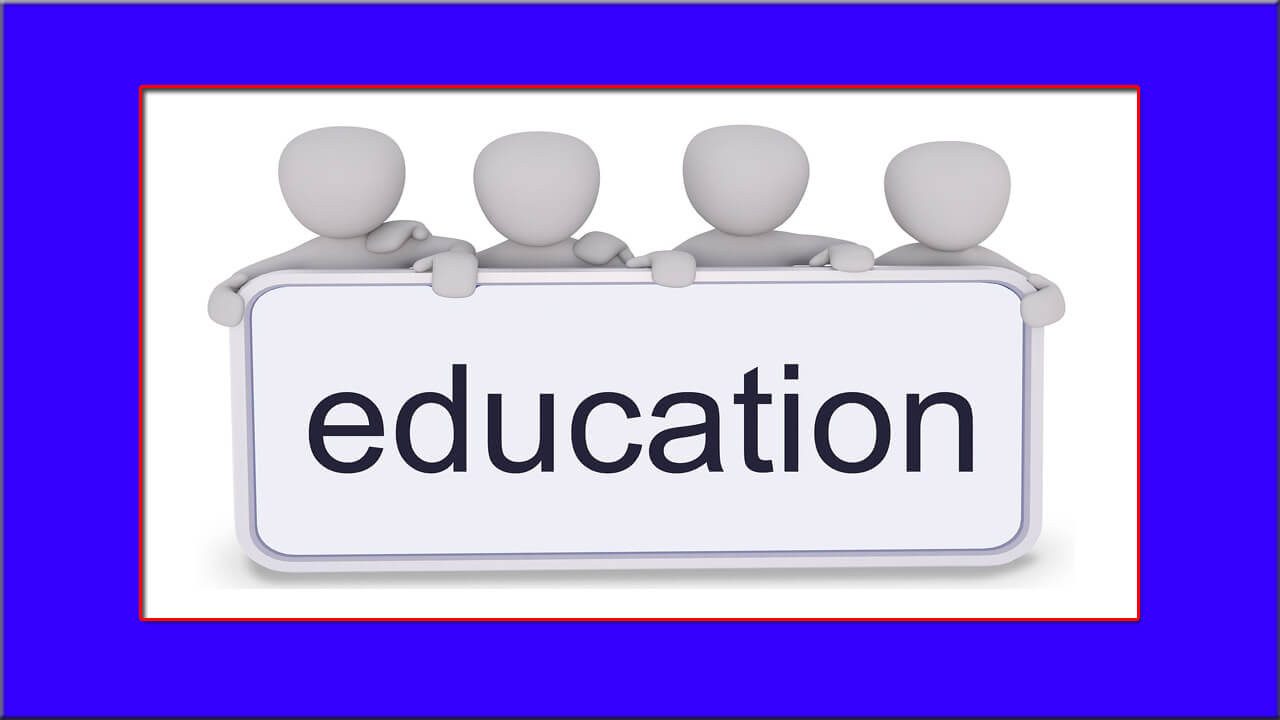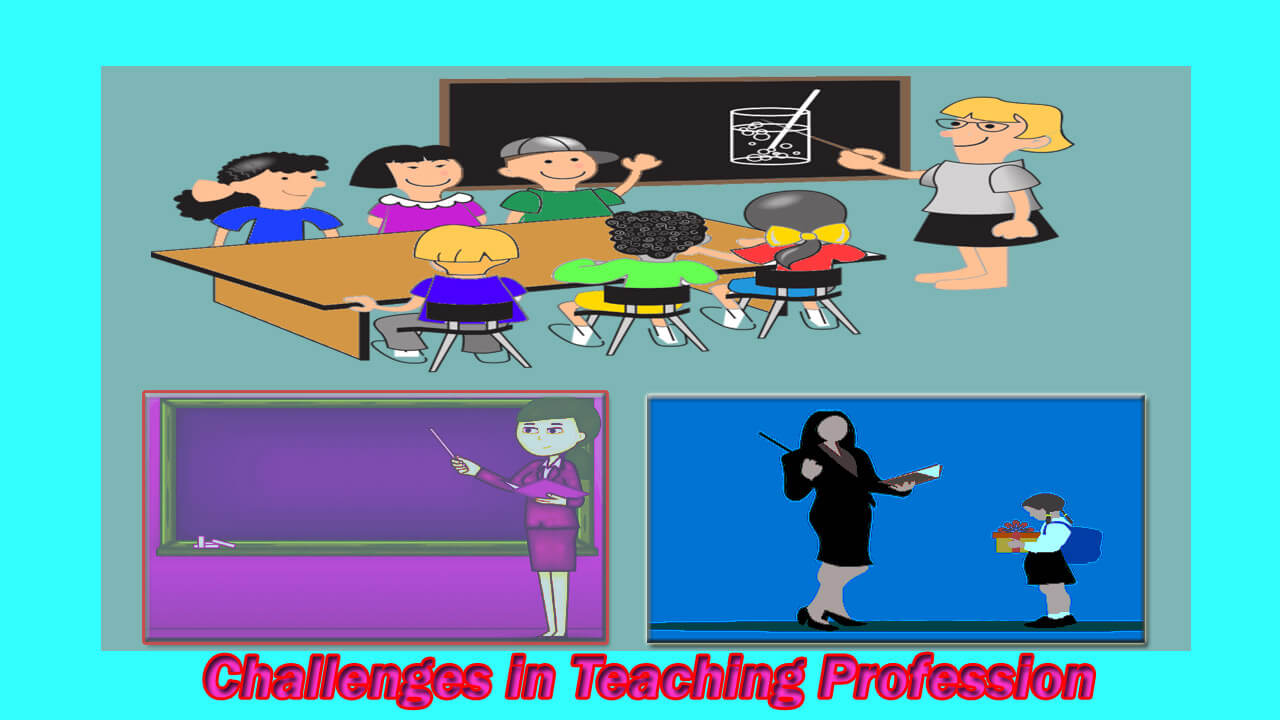Greetings and welcome to our blog article “Challenges in Teaching Profession”! We are delighted to have you here and trust that you will discover the content informative, captivating, and thought-provoking. Our primary objective with this article is to equip you with valuable insights, varied perspectives, and useful information related to the topic.
We have dedicated a significant amount of time and effort to researching and creating this piece, with the hope that it will resonate with you. We believe our blog serves as a platform for interaction and collaboration, and hence, we encourage you to share your thoughts, queries, and feedback in the comments section.
We welcome diverse viewpoints and constructive dialogue and firmly believe that we can all learn and develop together. We appreciate you taking the time to visit our blog, We hope you enjoy reading this article as much as we enjoyed writing it. Thank you for taking the time to visit.
Teaching is an incredibly rewarding profession that provides opportunities to impact young minds and make a meaningful difference in students’ lives. However, with these rewards come challenges that teachers must face head-on. From navigating large class sizes to working with diverse student populations, teachers must overcome a variety of obstacles in their daily work.
In this article, we will explore some of the most common challenges that teachers face in their profession. So, let’s dive in and discover the challenges in the teaching profession
The Captivating History of the Teaching Profession and its Dynamic Evolution over Time.
Teaching is one of the oldest and most important professions in the world. From the earliest days of human civilization, people have recognized the need to pass on knowledge and skills to future generations. The history of teaching can be traced back to ancient civilizations, such as the Greeks and Romans, who saw education as a means of building a better society.
During the Middle Ages, education was primarily reserved for the wealthy and religious elites. It wasn’t until the Renaissance and Enlightenment periods that education began to be seen as a basic human right. The rise of public schools and the establishment of teacher training programs in the 19th century helped to make education more widely available.
Today, teaching is a highly respected and valued profession that plays a critical role in shaping the minds of future generations. Modern teachers face a wide range of challenges, from managing diverse student populations to integrating technology into their teaching practices.
Despite these challenges, teaching remains a rewarding and fulfilling profession that continues to evolve and adapt to the changing needs of society. As we look to the future, it’s clear that the role of teachers will only become more important in shaping the world we live in.
Discover the True Essence of a TEACHER
Teaching is a profession that requires a unique set of skills and qualities, and the essence of a great teacher goes far beyond imparting knowledge to their students. At the heart of the teaching profession is a commitment to fostering curiosity, creativity, and critical thinking in students, and inspiring them to reach their full potential.
A great teacher is not only knowledgeable in their subject matter but also has a passion for teaching and a deep understanding of the learning process. They have the ability to create engaging and inclusive learning environments, tailor their instruction to the needs of individual students, and provide constructive feedback to help students grow.
In addition to these technical skills, a great teacher also embodies a range of personal qualities such as empathy, patience, and kindness. They are dedicated to their students’ success and well-being and strive to create meaningful connections with each of them.
Whether you are a teacher yourself or simply interested in learning more about the teaching profession, exploring the true essence of a teacher is an important step in understanding the impact that educators have on the lives of their students.
The Importance of Education in the Modern Era:
In the modern era, education is more important than ever before. With rapidly advancing technology, global communication, and a constantly changing job market, education is crucial for individuals to succeed in both their personal and professional lives.
A strong education can provide individuals with the knowledge, skills, and critical thinking abilities necessary to navigate an increasingly complex world. It can help them adapt to new technologies and ways of working, as well as communicate and collaborate effectively with people from diverse backgrounds.
Education also plays a vital role in promoting social mobility and reducing inequality. It can provide individuals with the tools and opportunities to improve their lives and the lives of their families, regardless of their socio-economic background.
Furthermore, education has the power to shape individuals into responsible global citizens who are equipped to address complex societal issues such as climate change, inequality, and social justice.
In summary, the importance of education in the modern era cannot be overstated. It is the key to unlocking a brighter future for individuals, communities, and society as a whole.
The Relationship Between Teachers and Students
The bond between teachers and students is vital in creating a positive and productive learning environment. It is a relationship built on trust, respect, and understanding, where teachers serve as mentors, guides, and advocates for their students.
A strong teacher-student relationship can greatly impact a student’s academic and personal growth. For example, a teacher who takes the time to get to know their students and understands their individual needs can create a more inclusive classroom environment. This can lead to increased student engagement, better academic performance, and a deeper sense of connection to the subject matter.
Additionally, a positive teacher-student relationship can have lasting effects beyond the classroom. Students who feel supported and encouraged by their teachers are more likely to develop self-confidence and resilience, which can benefit them in their personal and professional lives.
However, building a strong relationship with students is not always easy. It requires active listening, effective communication, and a willingness to adapt teaching strategies to meet the needs of individual students. By prioritizing the relationship between teachers and students, educators can create a positive and inclusive learning environment where students feel valued and empowered to reach their full potential.
Unique Articles of Krishvision.com/ Click Below
- Preschool Teaching Methods
- Effective Depression Management Techniques
- 10 Unique Techniques to build self-confidence
Universal Access to Education: Why Education is a Necessity for All in the Modern Era
In today’s world, education is no longer a luxury but a fundamental right. Universal access to education has become increasingly crucial in the modern era, as it provides individuals with the necessary knowledge and skills to succeed in life. Whether it is basic literacy or higher education, education plays a vital role in shaping the future of individuals and societies.
Education is essential in addressing global issues such as poverty, inequality, and unemployment. When individuals are educated, they are empowered to break the cycle of poverty, access better job opportunities, and contribute to the development of their communities. For instance, providing education to women and girls can help reduce gender inequality, increase women’s workforce participation, and boost economic growth.
Moreover, education is not only about acquiring knowledge but also about developing critical thinking, problem-solving, and communication skills. These skills are essential in navigating the complexities of the modern world and addressing global challenges such as climate change, healthcare, and technological advancements.
Education is a necessity for all in the modern era, and universal access to education must be ensured to build a more prosperous, equitable, and sustainable future.
Challenges in Teaching Profession

The field of teaching is both rewarding and challenging, as educators play a crucial role in shaping the minds of future generations. However, the teaching profession is not without its difficulties. In this article, we will explore some of the critical challenges teachers face today.
Inadequate Resources
One of the most significant challenges in the teaching profession is the need for more resources available to educators. Many teachers work in underfunded schools, where they must cope with outdated textbooks, insufficient supplies, and limited technology. This can make it difficult to engage students and create an effective learning environment.
Limited Professional Development Opportunities
Professional development is critical for teachers to stay up-to-date with the latest teaching techniques and strategies. However, many teachers face limited opportunities for professional development due to funding constraints or scheduling conflicts.
Demands on Time
Teaching is a demanding profession that requires a significant amount of time and energy. In addition to classroom instruction, teachers must also grade papers, create lesson plans, attend meetings, and communicate with parents. This can be overwhelming, especially for new teachers who are still adjusting to the demands of the profession.
Student Behaviour Issues
Another challenge that teachers face is managing student behavior. As a teacher, it’s important to create a safe and respectful classroom environment that allows all students to learn and thrive. However, disruptive behavior from a few students can disrupt the entire class, making it challenging to maintain a positive learning environment.
Student Diversity
In today’s classrooms, teachers must be prepared to work with students from a wide range of backgrounds and abilities. This can be challenging, as each student has unique needs and learning styles. Teachers must be able to adapt their teaching methods to meet the needs of each student, while still ensuring that all students are able to achieve their full potential.
Technology:
Technology is changing the way we teach and learn. However, it can also be a challenge for teachers. Some teachers may not have the necessary skills or resources to effectively integrate technology into their lessons. This can lead to a decrease in the quality of education that students receive.
Health and Safety:
Health and safety are important aspects of education. Teachers may face challenges related to the health and safety of their students. This can include dealing with students who have health issues or who may be dealing with violence or abuse at home. Teachers may also face health and safety risks in the classroom, such as exposure to infectious diseases.
Changing Educational Policies:
Educational policies are constantly changing. Teachers may have to adapt to new policies and regulations, which can be a challenge. This can require additional training and resources, which may not always be available.
Standardized Testing:
Standardized testing is another challenge that teachers face. Many schools and governments use standardized tests to measure student performance. However, these tests can be stressful for both teachers and students. Teachers may feel pressure to teach to the test, which can lead to a decrease in the quality of education that students receive.
Low Salaries:
One of the biggest challenges that teachers face is low salaries. Many teachers are underpaid and do not receive the same level of compensation as other professionals with similar education and experience. This can lead to financial stress and low morale among teachers, which can negatively impact their performance in the classroom.
Lack of Support:
Teachers often feel isolated and unsupported in their profession. They may not receive the support and guidance they need from their colleagues or administration. This can lead to a feeling of burnout and a lack of motivation to continue teaching.
The teaching profession is undoubtedly one of the most challenging but rewarding careers out there. While it can be incredibly fulfilling to watch your students grow and succeed, it’s important to recognize the significant challenges that come with the job.
From adapting to new technologies and teaching methods to managing diverse classrooms and addressing individual student needs, teachers face a myriad of obstacles every day. However, with dedication, perseverance, and a passion for education, these challenges can be overcome.
We hope that this article has provided valuable insights into the challenges faced by teachers in the modern era. By acknowledging these obstacles and working to overcome them, we can continue to elevate the teaching profession and provide our students with the best possible education.
As we continue our exploration of the teaching profession, we want to focus on strategies that can help overcome these challenges. In our next article, we will delve deeper into the various strategies that teachers can use to overcome these obstacles and succeed in their profession.
From effective communication to using technology in the classroom, we will provide practical tips and advice to help teachers thrive in their roles. Stay tuned for our next article, where we will discuss these strategies in more detail. Thank you for your continued interest and support!

